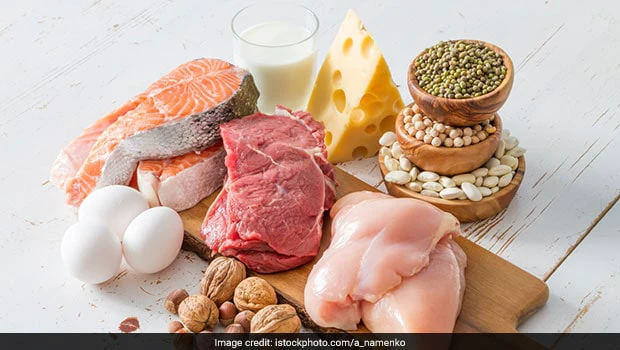When we want to lose weight, most of us immediately picture endless cardio sessions or cutting back on calories. While both matter, there’s one powerful yet often overlooked tool that makes a huge difference: For anyone looking to lose weight sustainably, whether you’re trying to shed a few kilos for health reasons or simply tone up, hitting your daily protein goals can be a game-changer.
In this article, we discuss why exactly is protein important for weight loss and how you can hit your daily goal.
Why is protein so important for weight loss?
1. Boosts satiety
takes longer to digest compared to carbs, which means it slows gastric emptying and keeps hunger hormones like ghrelin in check. Studies show higher-protein diets lead to improved satiety and reduced overall calorie intake.
2. Protects muscle while losing fat
When you’re in a calorie deficit, the body doesn’t just burn fat, it can also break down muscle tissue. helps preserve lean muscle mass while ensuring most of the weight you lose comes from fat.
3. Supports metabolism
Protein has a higher thermic effect (20-30%) compared to fats (0-3%) and carbs (5-10%). This means your body burns more calories just to digest and metabolise protein, slightly boosting overall energy expenditure.
4. Improves body composition
Weight loss isn’t only about the number on the scale, it’s also about body composition. Higher intake during calorie restriction helps reduce fat mass while maintaining or even increasing fat-free mass.
5. Enhances workout results
For those pairing diet with exercise (which is the most effective approach), protein is crucial for recovery and strength gains. Combining resistance training with adequate protein intake leads to better fat loss outcomes and leaner muscle definition.
How much protein do you really need?
There’s no one-size-fits-all number, but research suggests that people aiming for fat loss should consume 1.2 to 2.0 grams of protein per kilogram of body weight per day depending on activity levels and goals. For example: A 70-kg adult trying to lose weight should aim for 84-140 g of protein daily.
Beginner’s guide to meeting protein intake goals
1. Start with breakfast
Protein-rich breakfasts (like eggs, Greek yogurt, paneer bhurji, or protein smoothies) keep cravings at bay and set you up for balanced eating throughout the day.
2. Distribute protein across meals
Instead of loading all protein into dinner, aim for 20-30 g of protein in each meal. Research suggests spreading intake evenly improves muscle synthesis.
3. Mix whole foods with supplements
While natural foods should be the priority, dals, legumes, lean meats, tofu, dairy, nuts. Whey or plant-based protein powders can help if you struggle to hit daily targets.
4. Choose high-quality sources
Not all proteins are created equal. Animal sources (eggs, chicken, fish, dairy) are “complete” proteins with all essential amino acids. Vegetarians can combine sources (like dal + rice, or roti + curd) to get the full profile.
5. Snack smart
Swap chips and biscuits for roasted chana, boiled eggs, soy chunks, or nuts. Small swaps can close the protein gap without piling on extra calories.
6. Keep track
Use a food-tracking app or nutrition label checks to know your intake. Many people underestimate protein while overestimating carbs and fats.
Protein is not just another macronutrient, it’s the cornerstone of sustainable, healthy weight loss. From curbing hunger to preserving muscle and revving up your metabolism, getting enough protein can transform your fat-loss journey. For beginners, the key is consistency: build meals around protein, spread intake across the day, and pair it with smart workouts. Your scale may drop, but more importantly, your strength, energy and body composition will thank you.
